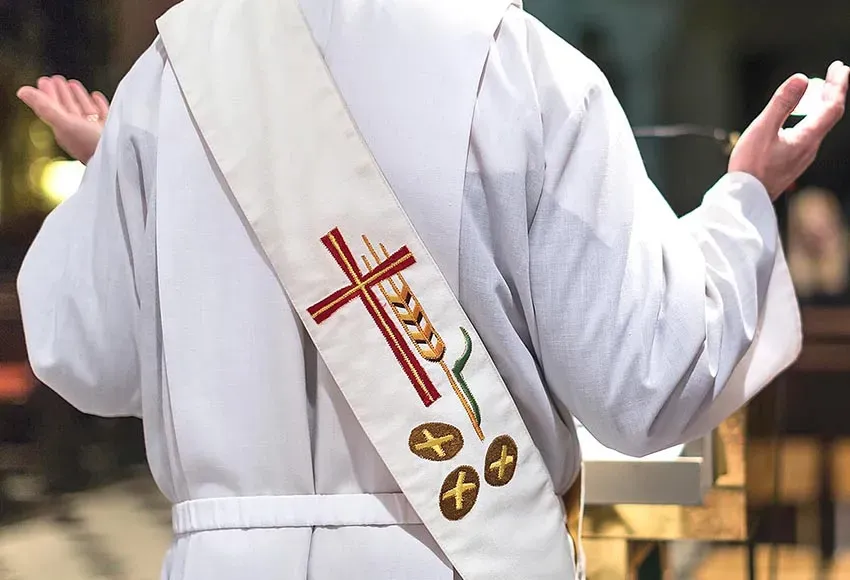The Roman Catholic diocese of Des Moines, Iowa, is enforcing a new gender identity policy that bans preferred pronouns, forbids the use of puberty blockers, and forces students, staff, and church members to use restrooms associated with their sex assigned at birth.
"These policies are established as binding for diocesan parishes, schools, organizations, and institutions of the Catholic Church in the Diocese of Des Moines," the diocese said in a January 16 statement.
The diocese includes 17 schools and 80 parishes in southwest Iowa.
According to the church, the policy "applies, but is not limited to, all Church employees, personnel, volunteers, and those entrusted to the care of the Church," meaning lay people.
Under the policy, no one "may designate a 'preferred pronoun.'" The diocese said people "must use the bathroom or locker room that matches their biological sex" and "are to follow the dress code or uniform that accords with their biological sex."
Participation in school or parish activities "must be consistent with the biological sex of the participant," the diocese said.
The diocese also barred using gender-affirming medical treatments like puberty blockers, saying, "no person is permitted to have on-site or to distribute any medications for the purpose of gender reassignment."
Anyone who may question their gender "should be guided to appropriate ministers and counselors," according to church policy.
LGBTQ advocates say policies like this are part of a growing trend among Catholic dioceses of the United States that are causing "severe harm" and damage to Transgender and Nonbinary youth.
"There are many, many pitfalls to this," Marianne Duddy-Burke, the executive director of DignityUSA, a Catholic LGBTQ advocacy organization, told Insider magazine after the announcement.
"It just pushes kids with gender identity questions or gender dysphoria to the margins. It isolates them," Duddy-Burke said, adding that the policies can lead to both depression and anxiety. "It makes them think there's something wrong with them."
LGBTQ advocates estimated that around two dozen of the 194 Roman Catholic dioceses and archdioceses in the US have adopted similar policies in recent years. Among them are Wisconsin's Diocese of Green Bay, Wisconsin's Diocese of Milwaukee, and Nebraska's Diocese of Omaha.
"They are very harmful statements," Francis DeBernardo, the executive director of New Ways Ministry, an advocacy group for LGBTQ Catholics, told Insider. "It can cause severe mental and emotional problems to be rejected like that."
"Transgender young people already have enough pressures on them that they shouldn't be receiving pressure from an institution that is supposed to be helping them," DeBernardo said.
"This policy could have deadly consequences in the name of an ideological concern," Keenan Crow, policy and advocacy director of One Iowa, confirmed. "We know that when people are constantly misgendered, their risk for adverse mental health outcomes goes up."
If the diocese was "really trying to discern what would be best for folks, I would think that their health, their mental health, their well-being would be top on the list," Crow said.
"Unfortunately, it does not seem to be."


